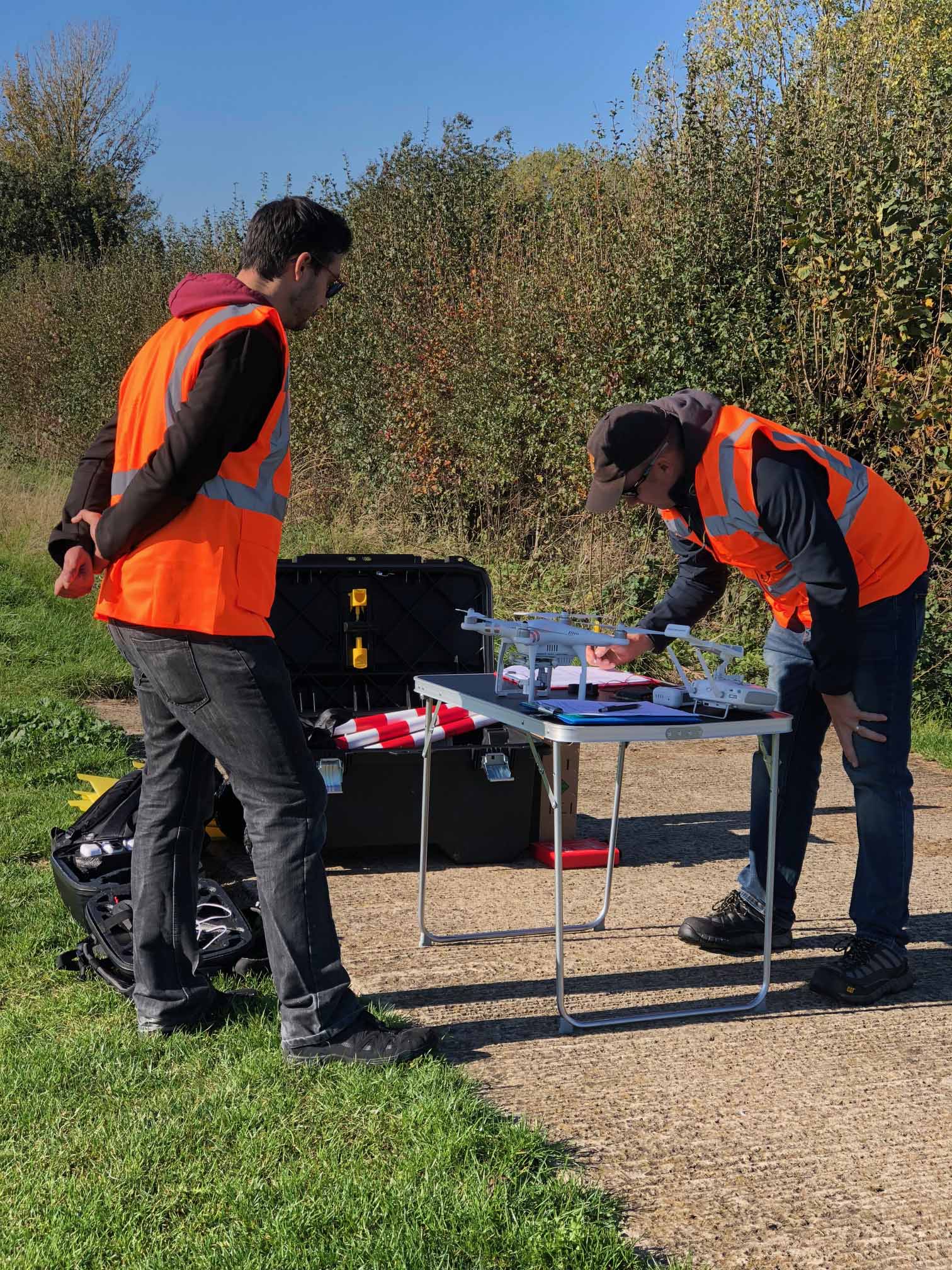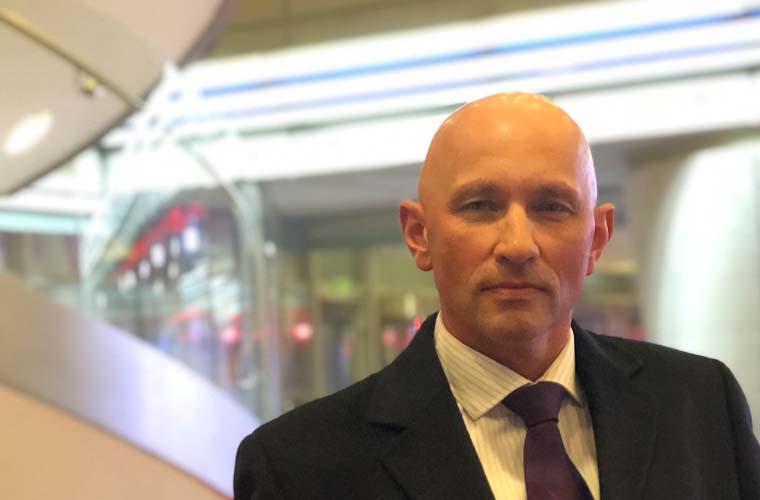Q: Why is now the time for companies to train their staff to fly drones?
A: As the Gatwick closure during Christmas of last year showed, the cost to business of poorly flown drones can be exorbitant, costing EasyJet over £15 million due to cancelled flights and refunds. Training properly to fly drones is not only legally necessary but also paramount to minimizing disruption to businesses. Anyone who uses a drone for commercial reasons must have the appropriate training and hold a PfCO. Even if you have permission from the land or property owner, without a PfCO you can be prosecuted. With drone use increasing rapidly, the CAA and police are cracking down on unpermitted commercial use by actively pursuing prosecutions.
Q: Who do you typically attract to your Academy?
A: We’ve noticed a paradigm shift in terms of who we are training: companies are now investing in up-skilling staff to ensure they have in-house drone capability for deploying wherever and whenever needed. Beforehand, we were training owner operators who wanted to fly drones commercially.
 Q: What is the Commercial UAV Academy?
Q: What is the Commercial UAV Academy?
A: The Commercial UAV Academy (CUAVA) is a full National Qualified Entity (NQE) approved by the Civil Aviation Authority to run training courses. It’s a UAV ground and flight school that helps drone operators achieve the qualifications they need to operate professionally. I founded CUAVA following 20 years UAV experience, to meet demand for well-trained, legally compliant commercial pilots.
Q: With more and more drones taking to the skies, how do we avoid casualties?
A: In 2016, there was a 365% increase in unlawful drone use. Increased drone use quite rightly means the development and implementation of stricter laws and safety guidelines around the use of drones, with a shift from flying ‘etiquette’ to more defined dos and don’ts. In November, the International Standards Office (ISO) published a proposed set of global standards for drone operations around the world, and are expected to be adopted worldwide in 2019.
Q: Do you think the new ISO standards on Drone safety are fit for purpose?
A: I welcome the ISO standards as a means of making drones more useful and accepted by business, but far more education is still needed. Although the CAA has its own well-thought-out regulations and the ‘Drone Safe’ initiative, undercover research conducted by our Academy confirms that worryingly misleading advice is still being given to purchasers of drones on the high street, with little or no mention of legal requirements or even common safety advice about operating a drone.
Q: How would you describe Drone use and the associated risks?
A: I would describe Drones as being a disruptive technology that is readily available, which encourages people to use it immediately, without thinking of the consequences. The same happened when the automobile arrived in the hands of private owners; legislation had to catch up with how the new technology was being used.
Q: Do you think the Gatwick Airport closure last year will affect legislation moving forward?
A: Speculation is widespread about what extra restrictions could now be put in place to try and prevent similar disturbances. There has been suggestion that the separation distance be increased to 5km from major airports, but this is purely speculation. Other restrictions may be suggested, but one thing is for certain: the qualified, certified drone operator is not the cause of the problem.
Mandatory registration of drones over 250g is already in the ANO, effectively air law and is scheduled to start in November 2019
What is required is more information at the point of sale of equipment to consumers explaining the rules, risks and requirements of operating a drone safely, even as a hobbyist.
Q: Risks aside, why are movie makers increasingly choosing Drones over other technologies?
A: Drones complement the existing technologies that are available, cranes and helicopters both have operational limits, drones fit in between these other options in terms of capability, and offer a flexible solution to the challenges.
Q: Why train at the Commercial UAV Academy?
A: The academy is one of the most established drone training schools in the UK, offering courses throughout the year in a variety of locations, including Cambridge and London. Our courses are led by true UAV experts with 10 to 20 years’ experience in the sector. We are also able to provide bespoke one-on-one training to those who want it, which is testament to our flexibility as an academy.
ABOUT COMMERCIAL UAV ACADEMY
Commercial UAV Academy (CUAVA) is a UAV ground and flight school that helps drone operators achieve the qualifications they need to operate professionally. CUAVA was set up by experienced drone operators to meet demand for well-trained, legally compliant commercial pilots. CUAVA is a full National Qualified Entity (NQE) and is approved to run courses by the Civil Aviation Authority. The CAA requires anyone wishing to operate a UAV for commercial gain to hold a NQE competency certificate before applying for Permission for Commercial Operations (PfCO). CUAVA instructors are also seasoned professional pilots, with a wealth of commercial experience, both on the ground and in the air, to pass on to their students.


